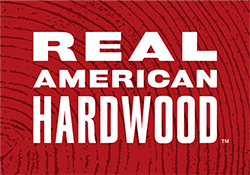Comparison of Finish Products
Finishes such as varnishes, shellacs, oil- and water-based products, vary on measures related to durability and working qualities. Each finish type has advantages and disadvantages. Here is a comparison chart of common finish products to help you choose the best finishes for your projects.
| Working Quality | Wax | Shellac | Nitro cellulose lacquer |
Most waterbased finishes |
|---|---|---|---|---|
| Ease of application | Excellent | Good | Fair | Good |
| Repairability | Excellent | Excellent | Excellent | Poor |
| Water resistance | Poor | Fair | Good | Good |
| Chemical resistance | Fair | Poor | Good | Good |
| Scratch resistance | Poor | Fair | Fair | Good |
Reactive finishes undergo a chemical change as they cure, making them not only more difficult to repair but also more durable (except for linseed and tung oil) than most evaporative finishes.
| Working Quality | Linseed oil | Tung oil | Oil-based varnish (alkyd resins) |
Oil-based polyurethane |
Catalyzed lacquer (& conversion varnish) |
|---|---|---|---|---|---|
| Ease of application | Excellent | Excellent | Good | Good | Poor |
| Repairability | Excellent | Excellent | Poor | Poor | Poor |
| Water resistance | Poor | Fair | Excellent | Excellent | Excellent |
| Chemical resistance | Fair | Fair | Good | Excellent | Excellent |
| Scratch resistance | Poor | Poor | Good | Excellent | Excellent |
Differences Between Oil- and Water-Based Urethane Finishes
NOFMA: (now the National Wood Flooring Association) indicates that both oil- and water-based urethanes provide durable, long-lasting finishes. They offer the following descriptions for comparison purposes:
Water-based urethanes have four major formulations that determine the primary element in the finish: (1) Acrylic; (2) Acrylic Urethane; (3) Urethane Acrylic; (4) Urethane. Generally, the more urethane a water-based finish has, the more durable and harder the finish is (in contrast to water-based finishes with high acrylic levels).
However, water-based finishes with higher urethane levels typically require more finishing expertise. In terms of visual effect, a water-based urethane finish generally yields a clear finish that enhances or brightens the natural variations of hardwood and is normally applied thinner than oil-based materials.
Oil-based urethanes typically yield hard finishes and have slower drying times than water-based urethane finishes. They tend to give hardwood a “softer” appearance and lessen the contrast of hardwood’s natural variations. They are normally applied thicker than water-based materials.



